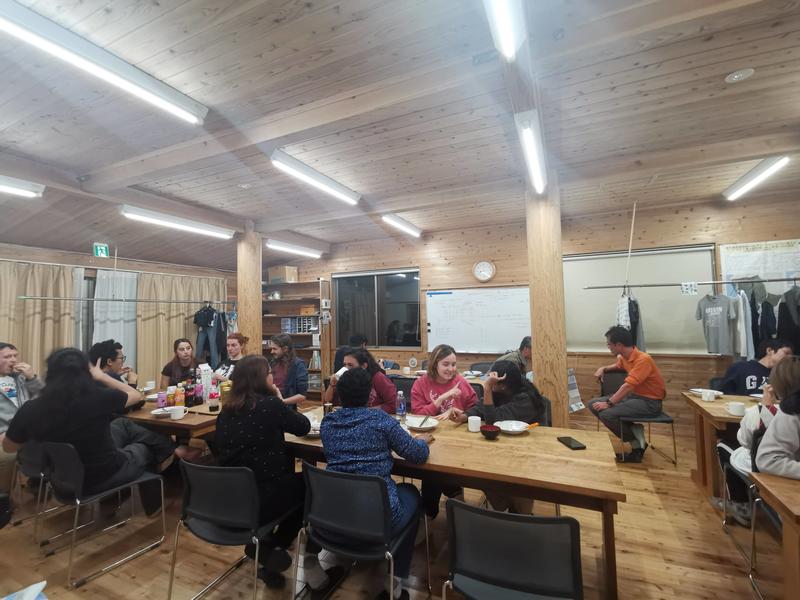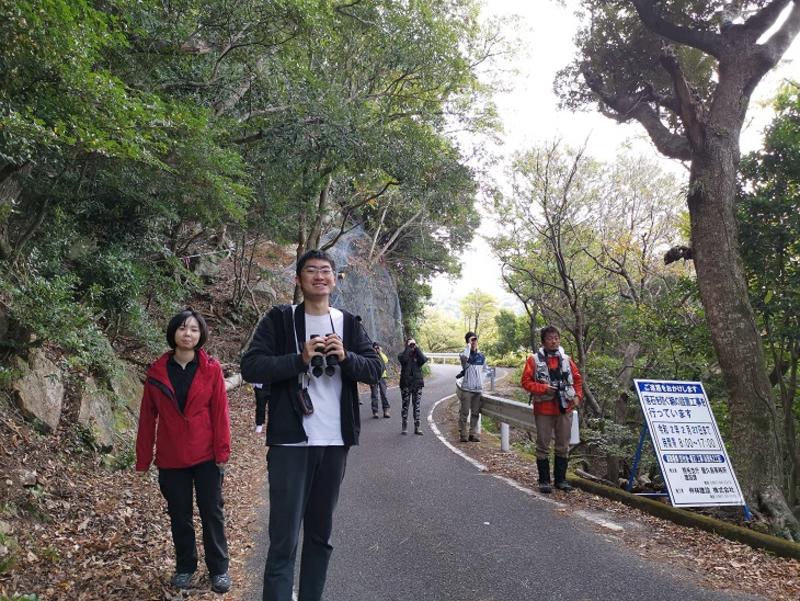I have just got back from partaking in the Japan Society for the Promotion of Science training programme, organised by Kyoto Univeristy and CETBio The group of students and researchers at the Wildlife Research Centre welcomed 6 international students from China, Indonesia, Brazil, India and Malaysia for a field course and laboratory training in Kyoto. They were open in discussing their research, culture and helping me navigate Japanese food as a vegetarian!

Upon arrival, we settled into our apartments in Kyoto and learnt a bit more about WRC’s research. We went to the zoo and aquarium with WRC students studying all sorts of interesting wildlife. After this, we completed a one week field school on Yakushima island. Being UNESCO world heritage site, Yakushima was a beautiful environment to learn in and has a dense population of sika deer and Japanese macaques. We split into two groups, one focusing on parasites and the other on deer genetics. I was in the deer group and a typical day involved following individuals of different age/sex categories and collecting feces, behavioural information and GPS coordinates. I learnt a lot about the process of data collection and the need for consistent protocols. A lot of the learning was also done in talking to passionate researchers about their work and Japanese ecology more generally. The hormone levels of the samples were analysed in the lab the next week. Despite our flight back to Kyoto being cancelled due to bad weather, the rain and storms showed us a different side to this beautiful island. The week was excellent field training and the setting of Yakushima island made it very special!

I chose then to study the geographic variation mtDNA haplotypes of Japanese macaques in the laboratory course the next week. We analysed samples collected from varied locations throughout the island to compare the distribution to a previous study. It was satisfying to be able to see the process of collection, lab analysis and data analysis using MatLab to recognise different genetic haplotypes.
To end the course we went to the 11th International Seminar on Biodiversity and Evolution at Kyoto University. As a team we presented a poster on the MtDNA of deer and I individually spoke about my dissertation research and the Paleo Primate Project.
The WRC, Kyoto University couldn’t have made us feel more welcome and I’m very grateful they shared their interesting research and beautiful city with us!
- Isabella Reynard